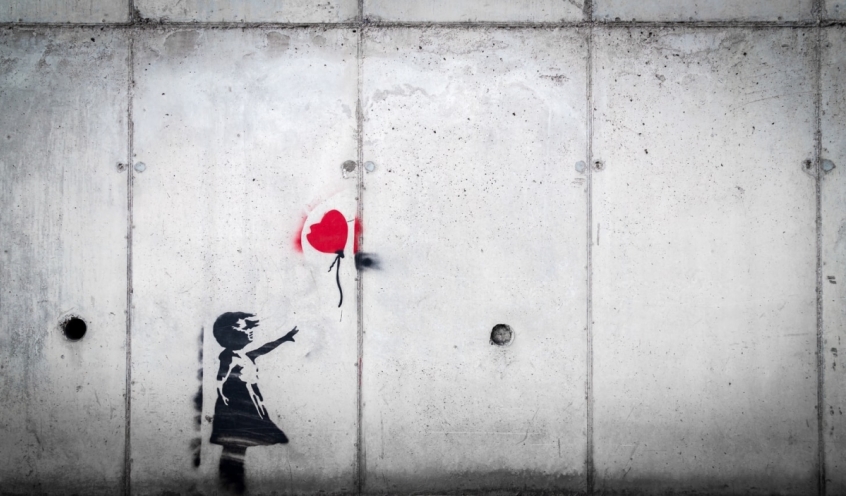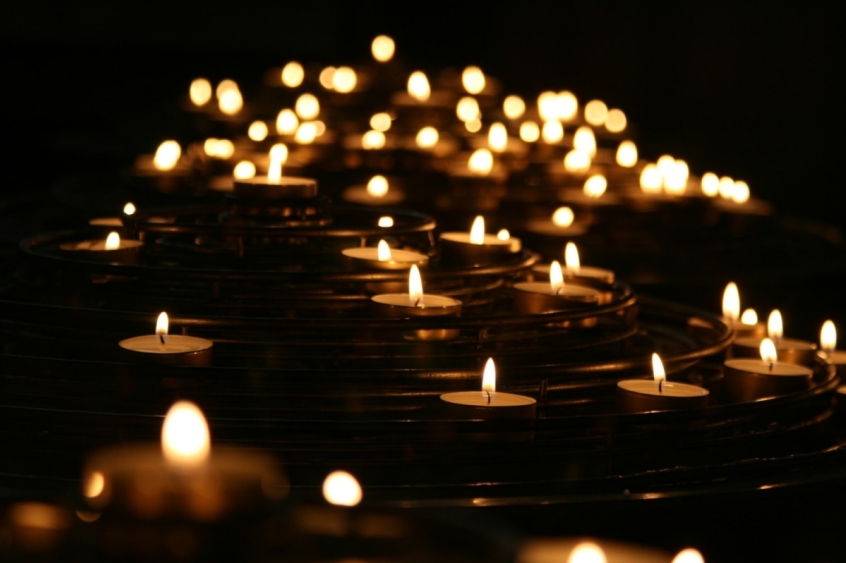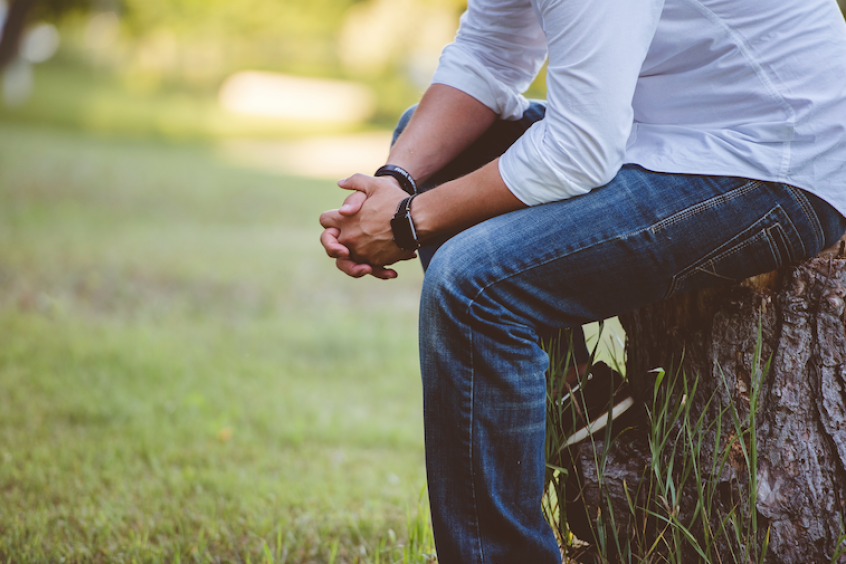
Pearl Liddle, of the Scottish Bible Society, is a facilitator with the Trauma Healing Institute, a Bible-based programme run through churches to help people, both Christians and non-Christians, find answers to their pain and grief in God's Word.
In the age of Covid-19, when many people around the world are suffering on different levels, what the course has to offer has become so much more pertinent.
Pearl speaks to Christian Today about how the programme is helping people deal with the spiritual and emotional challenges thrown up by the pandemic.
CT: How did the programme get started?
PL: The programme started in the early 2000s in the Democratic Republic of Congo, in Africa. Church leaders, mental health professionals and Bible translators got together because the country was wartorn and many people there were suffering major traumas. They felt they needed something for the church to use to help these people.
That then became the basis for the Trauma Healing Institute launched by the American Bible Society in 2012, and the material for the programme (Healing the Wounds of Trauma) has now been translated into around 150 languages. So it started in a particular context where people were suffering trauma but it has evolved in recognition of the fact that so many people all around the world are suffering some kind of trauma and need help.
Sometimes the word 'trauma' puts people off because when they think of their own lives and experiences, they don't necessarily think they've experienced a 'trauma'. But the way this programme approaches it is as a 'wound of the heart'. That covers all kinds of grieving, whether it be the loss of a loved one, a job, a financial situation or a relationship. When people dig a bit deeper by taking part in the programme, they come to realise that they too have experienced some trauma.
CT: The issue is very relevant now because coronavirus has caused huge challenges for people, including challenges to mental health and emotional wellbeing. What's your sense of the level of trauma that has been caused by coronavirus?
PL: I think it's huge all around the world and of course in Scotland where I'm working. The THI was very quick to produce materials specifically for Covid-19 and since March, we have facilitated many groups over Zoom giving space to people to share about how they're coping. For many of them, it's the isolation - especially when we were in lockdown - that people really struggled with mentally and emotionally. There are so many people who have lost loved ones or been put on furlough and really struggled with that; people who have financially struggled too. There are so many issues that are relevant to so many people in this crisis.
CT: How does the course material help people start to address those internal struggles?
PL: The THI material is not counselling but rather taking people to the Bible to see what God is saying in their situation and it's an opportunity for people to share together. I think that's one of the big things that has worked so well. As people have shared their experiences, others in the group have often then opened up about experiencing the same thing and there's a real sense of 'I'm not alone'. Other people are suffering these same things.
CT: Is there a prevailing struggle that perhaps you're hearing again and again through Covid-19, like depression or anxiety?
PL: Yes, I think anxiety has definitely been one of the big issues during Covid-19. And what's interesting is that as lockdown has eased, that anxiety for some people has actually doubled because they're afraid to go out there. People have been very honest with that. Particularly those who were shielding and felt quite protected in their bubble, and who are now being told it's OK to go out there. For some of them, they're anxiety levels are going up and they're really struggling.
CT: Has the THI been busier during the pandemic?
PL: Since April, we've run over 25 Zoom groups here at Scottish Bible Society, which is amazing. THI will have done many more. The response has been so positive because people have been able to realise that they're not alone in this situation.
CT: Is it only Christians who are taking part in the groups?
PL: The course is very Christian in its orientation as everything comes from the Bible, and people who are coming to take part know that before they start. But it's not specifically for Christians and so we have Christians and non-Christians taking part. I think there's been more of that diversity in the pandemic. People have been joining in more because they're looking for something to give them a sense of hope and peace.

People often come to the trauma healing group through word of mouth and sometimes what happens is that a group of Christians will take part but they'll then share with their friends how the programme has been helping them, and so people become interested in trying it out for themselves. And they might be people who wouldn't normally have any interest in church but they'll come along because someone they trust has said 'I think you might find this helpful'.
CT: Your meetings are normally in person but they've had to move online because of coronavirus. Has it been more challenging to provide trauma support to people online?
PL: Yes it is much more challenging. One of the things about meeting with someone face to face is that you can see how they're coping. And the material that we use quite often brings up things that people have buried for a long time. If you're face to face, you can really see if someone's struggling. On screen, that's so much harder to see.
Having said that, it's worked; people have responded positively, and we're grateful to God for that.
One of the things that's worked really well is that each Zoom group has also set up a WhatsApp group and so if someone is struggling during one of the sessions, someone in the WhatsApp group can then connect with them afterwards and speak with them further. That's been really helpful.
CT: What does the programme cover?
PL: There are five core lessons in the course and they are: if God loves us why do we suffer?; how can the wounds of our heart be healed?; what happens when someone is grieving?; taking our pain to the cross; and how can we forgive others?
They are simple questions but also huge questions. We take people through them by sharing with each other but we might also split into smaller groups or pairs if it's really personal. Confidentiality is a huge part of it and we stress that right at the beginning. Whatever is shared never goes any further, and people feel safe and able to share.
The Bible comes into it the whole way through and we share verses where God is speaking into these situations. It's simple in some ways but very relevant to how people are living today.
CT: There can be the tendency sometimes to think 'oh I don't want to make a fuss', and we can play down feelings of pain or hurt. What would you say to someone who is maybe playing down their own traumatic experiences and is reluctant to get help?
PL: The very first course that I participated in when I was training to become a facilitator, I thought I didn't really have any major traumas and I was quite a reserved person so I didn't think I would share anything. But as the course started, I felt extremely safe, and there were things in my life from several years ago that I thought I had dealt with and discovered I hadn't. So it was very healing and helpful to have other people whom I could share it with knowing they wouldn't share it with anybody else. Because they were sharing, it gave me the courage to share as well and I think that happens when people come on the course.
Every now and then, someone comes on the course and says 'I'm just going to watch, I'm just going to listen, I don't really want to take part'. But by the end of the session they're as involved as everybody else. So it is a good way of helping people to open up.
It's very much a participatory model. The person up front is just there to facilitate; they're not teaching. The idea is that you're getting the answers from the people there in your group and from the Bible. The facilitator is there to guide the discussion but people are given the space to learn from each other and from what the Bible says.
CT: Going back to the five core lessons, some of them don't have easy answers, do they? Many people are probably asking that question at the moment: why would God allow us to suffer if He loves us? How would you go about addressing that kind of inner conflict in someone?
PL: Each session starts with a real-life story. That's partly to give people a sense of where the session is going but it's also to give the participants other people to think about so that instead of thinking about they're own situation, they're initially thinking about someone else's first.

In that particular session on why God allows people to suffer, we then give them the opportunity to think about what we as a society today think about God, like 'He doesn't exist' or 'He isn't real', 'He is distant'. Whatever it is, we write all of these things on the board.
But then we take them to the Bible and give them verses about God's compassion, God's love, all of who God is and we write all of these truths on the other side of the board. It's a very powerful picture of what society thinks about God and what the Bible actually says about God.
We then go from there to talk about how God is our Father and how He comforts us and gives us hope. Again, it's very simple but it's a good foundation to then move on to the difficult parts of our life.
CT: We're out of lockdown but some places have already had to go back into lockdown, and overall, there is concern that we are all going to end up back in a second lockdown. If that does happen, what advice would you give to people to cope with the challenges of that?
PL: That's a hard question because I'll be honest; I dread that! I also struggled with lockdown and although I got used to it, it was a challenge. I don't know if I can give advice but I would want to give people the hope that God is still in control.
My two favourite verses in the Bible are Philippians chapter 4 verses 6 and 7: "Do not be anxious about anything, but in every situation, by prayer and petition, with thanksgiving, present your requests to God. And the peace of God, which transcends all understanding, will guard your hearts and your minds in Christ Jesus."
I think if our faith is founded in such an awesome God, He will sustain us and help us through it. It will be difficult, it's not easy, but I think if we focus on what God has given us in Him and in Jesus, that will help us to get through.
CT: In terms of churches, what can they do to help tackle the issue of trauma and mental wellbeing practically in their communities?
PL: In my own church in Edinburgh, pastoral care has become a huge thing, so much more than when I was younger. Although we haven't been able to meet in person, the pastoral issues have probably increased during Covid-19. I think pastors and pastoral care teams are really struggling through this and one of the things that the THI provided and which we've been using here in the Scottish churches is a booklet called Beyond Disaster. It's on our website and is downloadable free of charge. It's really speaking into our situation now and many pastors have downloaded it and given it out in their congregations.
One of the things it does is to give people permission to lament and that's a big part of our trauma healing course. In one of the sessions, we actually encourage people to write a lament. I know for me that was an extremely helpful thing to do and I know that participants have found that very helpful, to sit down and write out to God all the things that have been hurting them. I think it's a good thing for pastors to use just now for their congregations.
CT: Lamenting can be hard when we feel like we should put a brave face on things.
PL: I was leading our church prayer Zoom time a couple of weeks ago and I felt that while so many people were trying to be upbeat, some of us just didn't want to be upbeat! So I chose a lament for this prayer meeting and encouraged people to call out to God. The response was really positive. I think there was a moment where everyone just thought 'oh thank goodness, there's someone else who's feeling just like me'.
To find out more about running the THI programme through your church, visit https://scottishbiblesociety.org/our-work/trauma-healing/













